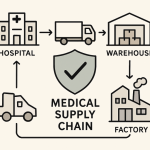It might seem straightforward—someone hits your car, you’re injured, and you expect compensation. But once you decide to handle the case yourself, reality hits differently.
From the moment the accident happens, you’re up against insurance companies, legal paperwork, deadlines, and tactics designed to reduce your payout. These hurdles are hard to clear without legal experience.
That’s why many victims turn to car accident lawyers from Sweet James Accident Attorneys. They know the tricks insurance adjusters use and how to push back with solid evidence and strategy.
If you’re considering going solo, you should know what you’re really up against. Read on to understand the challenges you’ll likely face and why legal help could make all the difference.
1. Insurance Companies Don’t Play Fair
After an accident, the other driver’s insurer isn’t on your side—their goal is to pay as little as possible. Adjusters use tactics like:
- Pressuring you into quick, lowball settlements.
- Twisting your statements to reduce liability.
- Delaying claims until desperation sets in.
Without legal training, you won’t recognize these tricks—or how to counter them.
2. Proving Fault Isn’t as Simple as It Seems
You might know the other driver caused the crash, but can you prove it? Evidence like skid marks, traffic cam footage, and witness statements disappear fast. Even if you gather proof, insurance companies will dispute:
- Who had the right of way.
- Whether speeding or distractions played a role.
- If pre-existing injuries affected your claim.
Missing a single detail can shift blame to you, slashing your compensation.
3. Medical Evidence Must Be Air-Tight
Injuries like whiplash or concussions aren’t always visible, yet insurers demand exhaustive proof. They’ll argue:
- Your treatment was “unnecessary.”
- Gaps in care suggest you weren’t really hurt.
- Pre-existing conditions caused your pain.
Without a lawyer, you won’t know how to link medical records to the accident or shut down these arguments.
4. Legal Deadlines Are a Minefield
Miss a deadline, lose your case. Period. Statutes of limitations, claim filing windows, and court dates vary by state and case type. Worse, insurers exploit delays, claiming you waited too long to report injuries.
5. Calculating True Compensation Is Complex
Most victims undervalue their claims by focusing only on medical bills. But what about:
- Lost wages from missed work?
- Future earning potential if you can’t return to your job?
- Emotional trauma or reduced quality of life?
Insurers bank on you accepting less than you deserve.
6. Negotiation Is a High-Stakes Game
Settlements require leverage. Insurers lowball because they know unrepresented victims often cave. Without a lawyer, you lack:
- Knowledge of comparable case values.
- Authority to threaten litigation.
- Skills to dismantle bad-faith arguments.
7. Courts Expect Professionalism
If your case makes it to court, self-representation comes with serious risks. Judges and juries don’t give you a pass just because you’re not a lawyer. You’ll be expected to know and follow court rules, introduce evidence properly, question witnesses, and make legal arguments—all while staying calm under pressure.
Bottom Line
Winning alone isn’t impossible—just highly unlikely. Between insurers, legal traps, and hidden costs, the system stacks the deck against you. The right guidance doesn’t just level the field; it gives you the power to win what you’re owed.
Without experience, it’s easy to miss the mark. A strong case can quickly fall apart in the courtroom simply because the person presenting it isn’t prepared for the legal environment.
Lynn Martelli is an editor at Readability. She received her MFA in Creative Writing from Antioch University and has worked as an editor for over 10 years. Lynn has edited a wide variety of books, including fiction, non-fiction, memoirs, and more. In her free time, Lynn enjoys reading, writing, and spending time with her family and friends.















